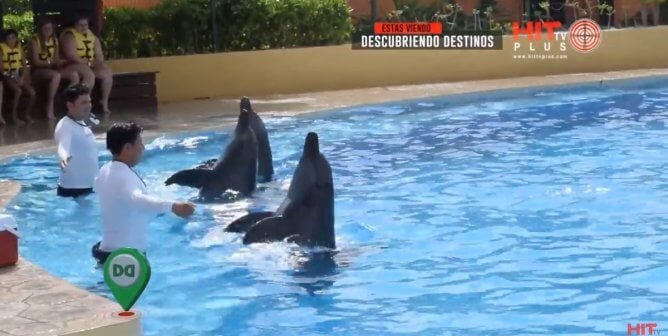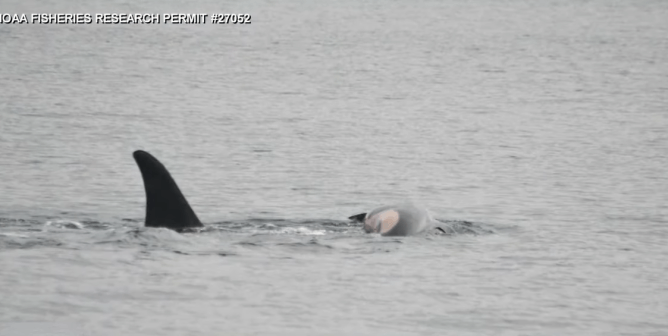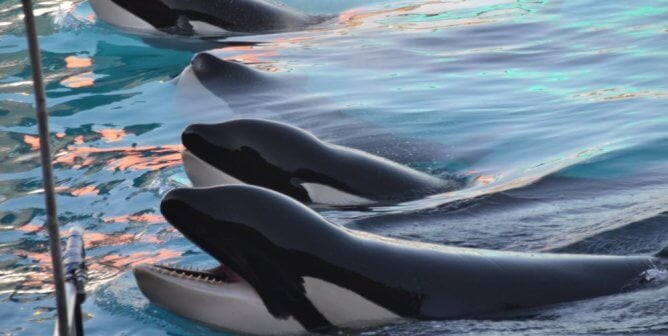Meet the Other Animals Suffering at the Miami Seaquarium
Lolita the orca has suffered for years at the Miami Seaquarium, but unnatural conditions and social isolation also cause physical and psychological damage to other animals there. This facility’s cramped, barren tanks and cages are unsuitable for any animal. A recent visit showed how those at the Miami Seaquarium are languishing as a result of isolation, inadequate habitats, and general stress. They include a bottlenose dolphin, a yellow-crested cockatoo, a sea turtle, and several manatees. None of them belong at the Miami Seaquarium.
Bottlenose Dolphins: Sore Mouths and Worn Teeth
PETA observed that one of the bottlenose dolphins at the Miami Seaquarium has completely worn-down teeth—all the way to the gum line. When the sensitive inner pulp cavity is exposed, it can be painful and prone to infection. Unnatural captive environments are more likely to harbor infection-causing bacteria, including antibiotic-resistant strains, because of the routine use of antimicrobial drugs and confinement to land-based tanks, resulting in exposure to higher concentrations of feces and pathogens from human hands or dirt. Dental infections can cause a number of other illnesses, including heart disease, diabetes, and pneumonia, which is the most common cause of death for dolphins in captivity.
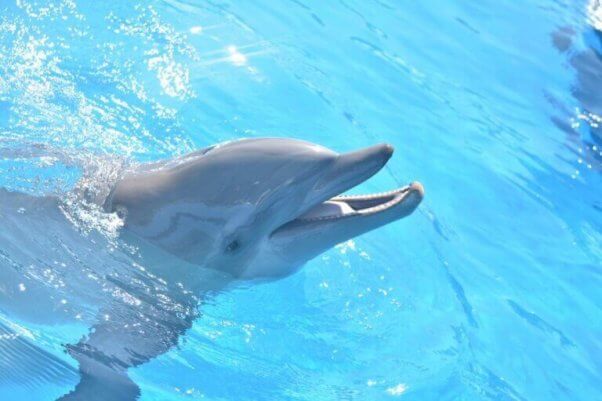
While some tooth wear occurs in wild dolphins, it comes as a result of feeding, hunting, catching prey, and exploring. At marine parks, dolphins can’t engage in these fundamental types of behavior but are instead restricted to hard, artificial surfaces, such as concrete walls and metal bars, and often bite them out of stress or frustration. Dolphins held at the Miami Seaquarium get no natural enrichment from their environment. Instead, they’re expected to perform tricks and swim with human visitors, so they’re more likely to come into contact with germs that can cause infections.
Yellow-Crested Cockatoo: This Bird Has No One to Flock With
Even though birds need the company of other birds and the opportunity to fly freely in order to thrive, PETA observed that a lone cockatoo continually flips his or her head, a neurotic and abnormal behavior common in stressed captive birds.
Yellow-crested cockatoos form strong, often lifelong, pair bonds in their natural environment. They have large and dynamic social networks within flocks, coming together for feeding and roosting. They are highly emotional and communicate with one another through complex verbal and body language, nurturing their intimate bonds through physical affection by frequently preening and attending to their partners. Their deep emotional lives make them particularly vulnerable to suffering when they’re kept alone in cages.
Sea Turtle: Inadequate Habitat, Inadequate Life
Sea turtles swim thousands of miles in the ocean each year between their feeding grounds and hatching beaches. They have remarkable navigational abilities, using the Earth’s magnetic fields, the sun, and the currents—and they’re unable to engage in this or other natural forms of behavior inside a tank like those at the Miami Seaquarium. Sea turtles belong in the ocean. If they’re unable to be released, they should be housed in natural or naturalistic environments that provide ample space, natural diversity, and enrichment.
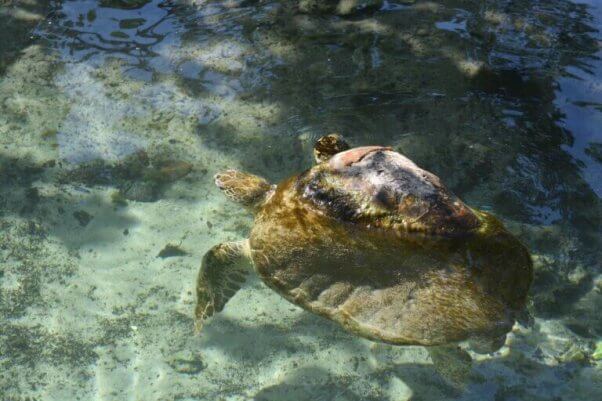
Manatees: Cramped Conditions Lacking Enrichment
In their natural environments, manatees move freely through thousands of miles of rivers, estuaries, canals, and coastal areas. The four in captivity at the Miami Seaquarium are forced to live in two small tanks made of concrete and metal. This artificial environment gives them little enrichment and leaves them exposed to the elements, and it’s simply an unacceptable habitat for these animals. Rescued manatees who are unable to live in a natural environment should be retired to seaside sanctuaries, not kept in cramped tanks.
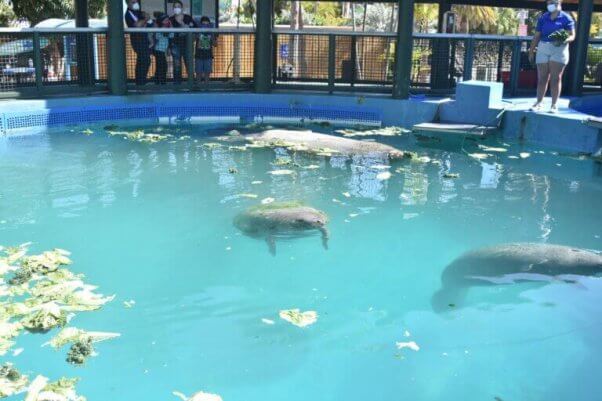
The Miami Seaquarium can never come close to providing Lolita and the other animals there with everything they need to live happy, healthy lives. Don’t visit it or any other marine park, and help Lolita by urging the Miami Seaquarium’s parent company to retire her to a seaside sanctuary:

